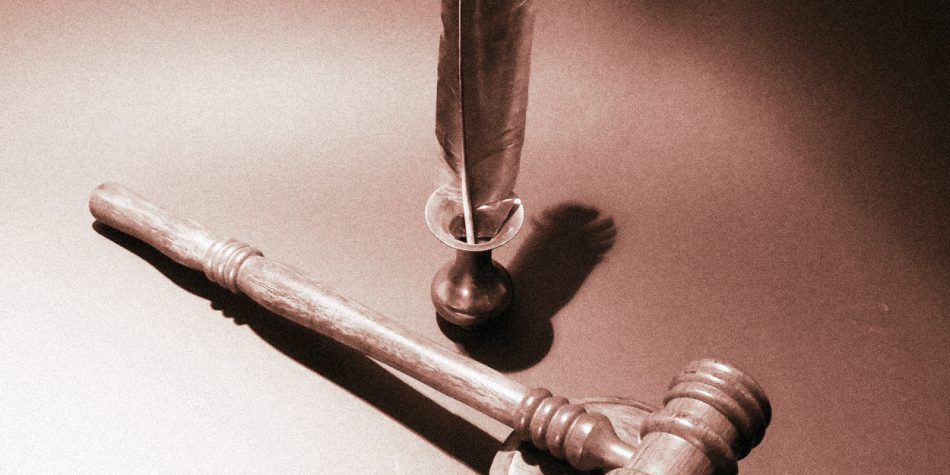When news that a member of the Huntsman family had filed a federal lawsuit against The Church of Jesus Christ of Latter-day Saints began to show up in national media outlets, the public commentary that ensued was perhaps predictable: Shock and outrage. While some treated the allegations as a “bombshell” development for Latter-day Saints, others used the opportunity to express their indignation at whatever gripes they felt towards organized religion or the Church of Jesus Christ specifically.
Far less attention went towards asking simply, do the accusations have any basis? Among active members of the Church themselves, these allegations elicited a different kind of reaction: this again?
At the beginning of the Church’s restoration, enemies of the Prophet Joseph Smith took their complaints to the court system. The historical record confirms that Smith “endured an average of one lawsuit per month during most of his ministry.” While some raised legitimate questions for the courts, such as the Kirtland Safety Society’s failure, others were nothing more than thinly veiled religious persecution, such as a disorderly conduct complaint for “setting the country in an uproar by preaching the Book of Mormon.” Eventually, former Church members formed a group in Nauvoo with the express purpose of finding lawsuits they could file to harass Joseph Smith and the Church.
In fairness, leaving a once precious and closely-held conviction, what researchers call “deconversion,” can be spiritually and emotionally taxing. It can leave former members struggling to identify clear next steps.
Amorette Hinderaker, a scholar on narratives around leaving The Church of Jesus Christ of Latter-day Saint suggests that leaving the faith “is to leave not only an organization but the core identity”—highlighting the “difficulty of constructing an ex-member identity.” This process can be especially challenging because the Church of Jesus Christ is what Hinderaker calls a “totalistic” faith taking up the full spectrum of someone’s life—values, identity, and close relationships.
When former members leave a totalistic faith, suggests the late Bryan R. Wilson, an Oxford-based sociology of religion scholar, they can be prone to act, “from a personal motivation to vindicate themselves and regain their self-esteem, by showing themselves to have been first a victim but subsequently to have become a redeemed crusader.”
Just as Julian the Apostate sought to harass and drive-out the Christianity he rejected in ancient Rome, today’s “deconverts” may likewise choose to seek ways to vindicate themselves.
This can take many forms, some healthy, some activist, some vindictive. While others choose to take the path of what Kate Taylor Lauck calls “the publicity stunt lawsuit.“
The latest participant is unique only in the notoriety of its litigant: James Huntsman, the son of the late billionaire Jon Huntsman Sr. and brother of former Utah governor Jon Huntsman, Jr. But the underlying complaint comes at the end of an increasingly tiresome line of deconverts seeking to leverage the legal system to rule on the validity of their former religious beliefs and perhaps help them navigate the difficulty of constructing a new identity.
Since Joseph Smith’s day, others have followed the same pattern. The children of President Nelson were accused of running a pedophile ring involving ritualistic sexual abuse against neighborhood children in Bountiful, which was dismissed. A documentary film made sensationalistic claims about Gordon B. Hinckley sexually abusing prostitutes. There was so little evidence for the claim, most organizations even explicitly opposed to the Church refused to carry it.
And then, of course, there was the widely reported story of the woman accusing the MTC President of sexual abuse, which was dropped.
While each of these cases was dropped or dismissed, the initial allegations, not their dismissal, linger in the public consciousness.
Thomas Phillips may be the progenitor of this recent run. In 2013 he sought to take then-President of The Church of Jesus Christ Thomas S. Monson to court for fraud. Why? He was hoping the court would rule The Book of Mormon wasn’t true. The Judge in the case, Howard Riddle, went so far as to call Phillps’ efforts “abuse,” writing that, “the process of the court is being manipulated to provide a high-profile forum to attack the religious beliefs of others.”
Then came the now-infamous “whistleblower” complaint. This complaint about the Church’s finances came from recently disaffected Latter-day Saints. The documentation was littered with memes connected to Latter-day Saint deconverts such as tapirs and references to the Church as LDS corp. The allegations made big-headline international news, but the legal problems those headlines were seemingly based on never materialized.
Yet the lawsuit list continues. Last year, another woman took time amid the COVID-19 pandemic to file a class action against the Church. She believed the Church committed fraud by teaching that Joseph Smith saw God. She claimed both fraud and breach of fiduciary duty—in most respects covering the same ground Huntsman does. The judge was clear in his dismissal, “Churches can be liable for fraud claims like anyone else. But the First Amendment bars such claims when they would require a court to consider the truth or falsity of a church’s religious doctrines.”
Every lawyer knows about Rule 11. In the Federal Rules of Civil Procedure, Rule 11 aims to ensure that lawyers conduct due diligence on a given client’s claims before they file a complaint that might waste the court’s time (and taxpayer money). It is a tool to prevent precisely these kinds of baseless lawsuits from continuing unabated.
So when Julie Taggart, Lynette Cook, and Rodney Vessels tried to sue the Church, this time for presumed RICO violations for teaching about “eternal torture,” they represented themselves in court.
It has become cliché that “the process is the punishment” when it comes to litigation. And when those who “have a personal motivation to vindicate themselves” choose to use the court system to accomplish their mission, it’s not unfair to suggest they are engaging in religious discrimination against their former faith no less than Julian the Apostate did against early Christians.
And into this illustrious history comes the latest in the long list of lawsuits. Multiple experts suggest that the tone, style, and language Huntsman uses are not those of a serious legal complaint, but one whose purpose is to generate headlines.
Aaron Pacini, a litigator, and owner of The Law Brokers said of Huntsman’s suit, “Huntsman faces a very steep legal climb. The pleading is very sensational. It focuses on the dramatic rather than on building a legal case.… The lawsuit was filed, at least in part, to perpetuate a narrative.”
Yet once again, none of this will matter for many people, for whom simply the filing of this lawsuit is evidence enough of what they already know. How many people outside of the Church saw headlines of the lawsuit, nodding in disdain about a faith they’ve already come to despise?
That’s not how our legal system should function. The system was designed to help real victims of real harm. The most troubling problem with these kinds of lawsuits is not only that they reinforce false narratives in the public eye. They also effectively cause the public to become jaded when genuine allegations arise. Victims need the legal system to ensure justice, but lawsuits aimed to grab a headline may actually undermine the efforts of those victims who muster true courage to come forward.
Deconversion is a difficult and emotional minefield. Sincere well wishes to James Huntsman as he navigates his faith journey. But the courts are not there to help ex-members feel more validated in their new convictions and identities—not even for kids of billionaires.

















